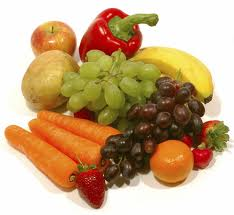 While it is often assumed that vegetarians simply do not eat meat, fish, or poultry, there are many different categories of vegetarianism:
While it is often assumed that vegetarians simply do not eat meat, fish, or poultry, there are many different categories of vegetarianism:
- Lacto-ovo vegetarian diets allow eggs and dairy products; however still exclude meat, fish, and poultry
- Lacto-vegetarian diets allow dairy products; however exclude meat, fish, poultry, eggs, and foods that contain them.
- Flexitarian diet, also known as a semi-vegetarian diet, refers to someone that follows mainly a plant-based diet, however will consume meat, dairy, eggs, poultry, and fish on occasion
- Vegan diets do not allow any animal or animal products in their diet
NUTRIENTS OF CONCERN
Protein: According to the American Dietetic Association, research has shown that eating a variety of plant foods throughout the day can provide the required essential amino acids (the building blocks of protein) and therefore, supplemental protein is not needed.
Iron: Heme iron, found only in meat and eggs, is absorbed more easily than non-heme iron, which is found in vegetables. Fortunately, when non-heme iron is eaten along with vitamin C, the body absorbs it almost as easily as heme iron.
Calcium: Vegetarian diets usually meet recommended calcium requirements, however vegans tend to have low intakes of calcium.
B12: Vitamin B12 is naturally found in animal products and is not usually present in plant products. Some foods are fortified with B12, however most vegetarians and vegans need to take a non-animal derived B12 supplement.
WHY BE A VEGETARIAN?
According the American Dietetic Association, vegetarian and vegan diets may provide health benefits in the prevention and treatment of certain diseases. Both diets have been associated with the following benefits:
- Lower risk of death from heart disease
- Lower cholesterol levels
- Lower rates of high blood pressure
- Decreased incidence of type 2 diabetes
- Lower BMI
- Lower overall cancer rate
It is speculated that this may be due to a lower intake of saturated fat and cholesterol and a higher intake of fruits, vegetables, whole grains, nuts, soy products, fiber, and phytochemicals.
Interested in becoming a vegetarian and unsure about what to eat? Contact me to schedule a consultation where I can show you that being a vegetarian is both easy and delicious!
RESOURCES
- List of Iron-Rich Foods for Vegetarians. Live Strong Web site. 2011. Available at: http://www.livestrong.com/article/209812-list-of-iron-rich-foods-for-vegetarians/. Accessed July 7, 2011.
- Nutrition and Healthy Eating. Mayo Clinic Web site. 2011. Available at: http://www.mayoclinic.com/health/vegetarian-diet/HQ01596. Accessed July 7, 2011.
- Vegetarianism in a Nutshell. VRG Web site. Available at: http://www.vrg.org/ nutshell/. Accessed July 7, 2011.
- Vitamin B12 Deficiency: Vegetarians, elderly may not get enough vitamin B12. 2005. Harvard Health News Letter Web site. Available at: http://www. health. harvard.edu/press_releases/vitamin_ b12_deficiency. Accessed July 8, 2011.
- Vitamin B12. National Institute of Health Web site. 2011. Available at: http://ods.od.nih.gov/factsheets/vitaminb12/#h3. Accessed July 8, 2011.
